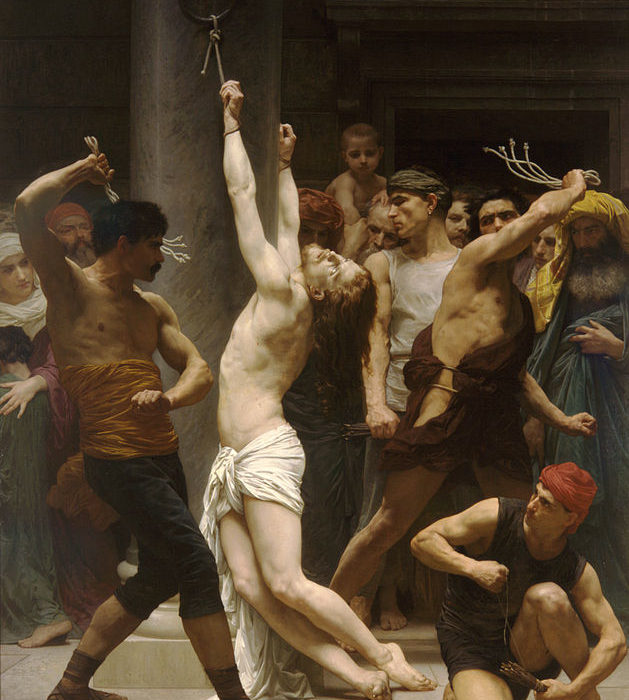Sermon for the Fourth Wednesday of Lent
‘Never open your mouth again because of your shame, when I atone for you for all that you have done, declares the Lord God.’
+INJ+
Thus far, we have discussed the prayer of our Lord, and in particular we have emphasized
that it is His prayer, the prayer that, before any of His disciples, before any
of us prayed it, He prayed. He prayed that His Father’s will be done. He prayed
that His Father’s kingdom come. He prayed that He be given but what little
sustenance was needed for Him to accomplish His Father’s will.
Yet now we come to a seemingly more difficult petition: ‘Forgive us our trespasses, as we forgive those who trespass against
us.’
This confuses us, for Christ committed no sin. ‘For knowing every human weakness, yet without sin’ did He live His
life. So how is it that He begs forgiveness?
We are confused by this petition because we do not understand what it is that
we confess when we pray during Holy Liturgy on the Lord’s Day ‘Who for us men and for our salvation was
incarnate by the Holy Spirit of the Virgin Mary, and was made man.’
He was made man; and not just a man. He was made man, every man, all man,
all of humanity. All that was humanity was made His, and He became all of
humanity. He became Adam. He became Eve. He became Lot. He became Lot’s wife.
He became Moses. He became the children of Israel. He became David. He became
Uriah. He became Judas. He became the Jews who called for His death. He became
Peter. He became Pilate. He became you.
He became all of humanity. In becoming Adam he became the first blasphemer. In
becoming Eve, He became the first deceived of Satan. In Lot, He became an
exile. In Lot’s wife, He became the pillar of salt. In Moses, He became a
coward, then a murderer. In Israel, He became an idolater. In David, he became
an adulterer. In Uriah, He became a corpse. In Judas, He became a traitor, and
in the Jews, a deicide. In Peter, He became an apostate; in Pilate, He became
guilty. In you, my people. In you, what has He become?
‘For God hath made him sin, who knew not
sin, for us.’
Christ committed no sin; but all sin is His, for He has
become all in all. And in becoming the alpha and omega, the beginning and the
end; in becoming Him in whom we live
and move and have our being, has He not become all that is within our
being, our wretchedness, our misery, our hatefulness, our malice, our anger,
our envy, our alcoholism, our gluttony, our sorrow? Has He not become all in all?
Christ committed no sin; but all sin is His. So He has become the greatest of
all sinners. And all the Lamb of God, who beareth
upon himself the sin of the world, He prays. ‘Forgive us our trespasses.’ ‘Us’
it is written, for when He prays, He prays that the sins which were ours, but
that He now bears, be forgiven.
And how shall they be forgiven? See how a woman of sin weeps at His feet. See
how He lifts her up. See how He rebukes the disciples and Pharisees and the
supposedly righteous. See how He tells this damned soul ‘Your sins are forgiven.’
I tell you, this is nothing. For in time, as the bearer of all mankind’s
sin, all mankind shall exact vengeance against Him. The Sadducees and Pharisees
shall plot His demise. The disciples shall forsake His name. The Jews shall
demand His murder. The Gentiles shall grant their desire. All shall exact from
Him innocent blood. And innocent blood shall they have.
Blood, drawn unto a scourge and a lash. Blood splashed across the pavement of
Jerusalem’s whipping post. Blood strewn upon the faces of jeering Roman soldiers.
Blood dripped onto the road of suffering leading to Golgotha from innumerable
wounds and injuries. Blood upon the nails of the cross. Blood soaked into the
wood of the cross. Blood, pouring forth from hand and foot and rib onto the
virgin earth. Blood, spread across miles of the Judean desert. Blood, which you
bring to your lips every Sunday. This blood, which speaks a better word than the blood of able.
Blood, which prays, from the pavement, from the cross, from the earth, from
the chalice: ‘Forgive them Father, for
they know not what they do.’
Therefore Christ is forgiven, for He has forgiven all. This is His prayer,
that God forgive our sin in Him, for He has forgiven we, who have all sinned
against Him, that we may never open our
mouths again because of our shame.’
This is our God, our Lord, who loved us.
‘Blessed is he.’
+INJ+
Preached by Pastor Fields
Sermon texts: Psalm 113; Ezekiel 16:59-63; Luke 7:36-48



